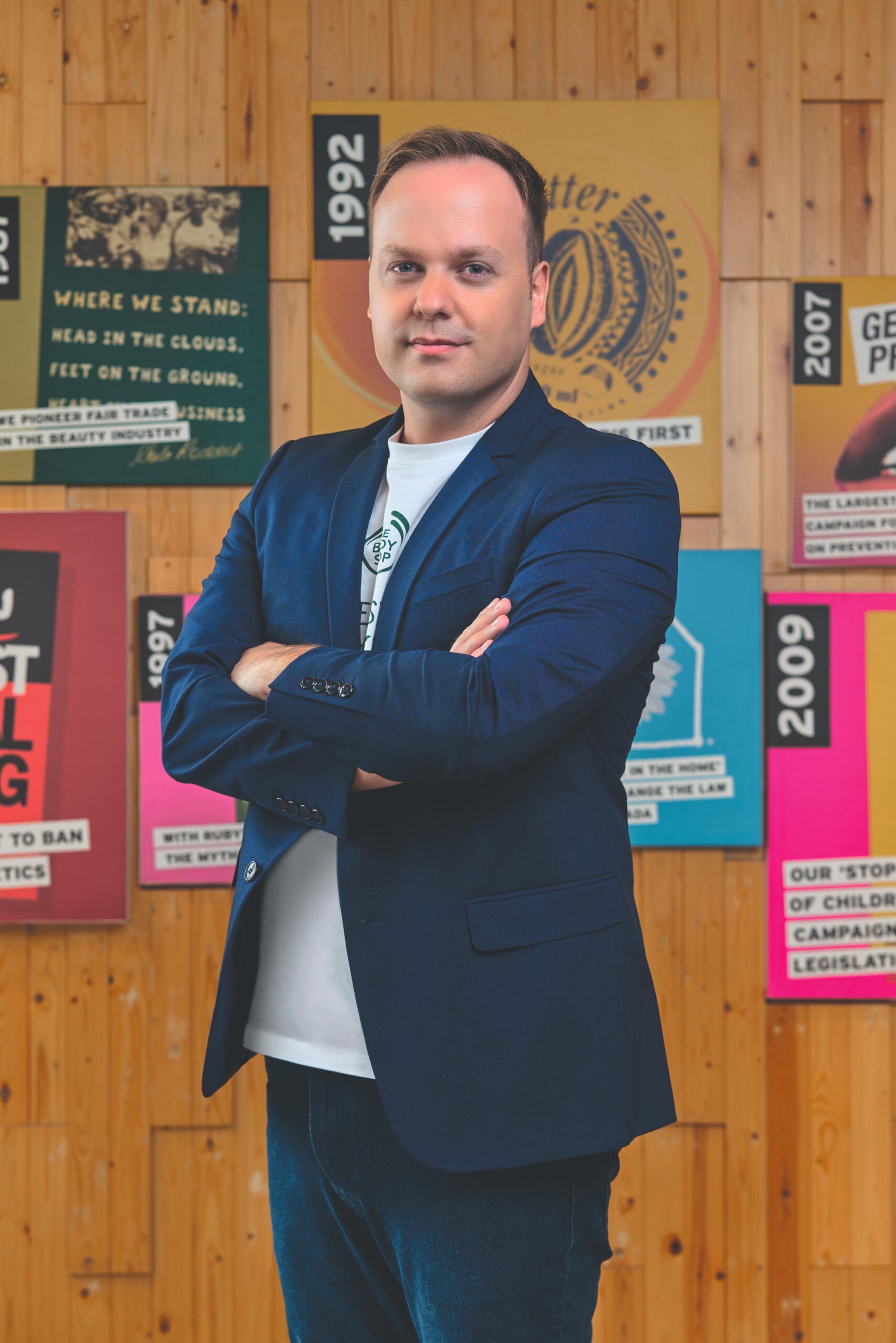Greetings from…

‘In IDE, you learn about things like consumer psychology, production methods and how to do research. You become a generalist, able to talk about topics in which you may not be an expert. That proves increasingly useful as you go up the ladder’
© Daniel Hagmeijer
Text Agaath Diemel
In 2004, student of Industrial Design Engineering (IDE) Daniel Hagmeijer sat a statics exam at the Faculty of Architecture and the Built Environment, having heard that the marking was less strict there. He not only secured a pass, but also met his partner, fellow student Leonie. Since 2012, they’ve been living in Leonie’s native country of Indonesia with their son (8) and daughter (6). Hagmeijer is Chief Marketing Officer at The Body Shop Indonesia.
In Jakarta, Hagmeijer joined Mirum, a digital marketing company, where he covered the whole gamut of marketing, including user experience design (UX), market research and advertising. “In the end, I was running the company,” he explains. After a merger, he moved to The Body Shop Indonesia. Even there, he has a wide portfolio. “I’m responsible for marketing and communication, branding, web and app design, media procurement, the whole shebang.” He works with a team of around 50 staff. He partly attributes his career success to his degree programme. “In IDE, you learn about things like consumer psychology, production methods and how to do research. You become a generalist, able to talk about topics in which you may not be an expert. That proves increasingly useful as you go up the ladder,” he says. He is proud of his current employer’s corporate philosophy: fighting for a fairer, better world. “Lots of companies may make similar claims, but don’t necessarily act accordingly. The Body Shop does, which is why I switched.” Last year, the company ran a campaign for a new law to combat sexual abuse, placing violence and domestic rape back on the political agenda, and ultimately navigated it through parliament. “I’m proud to have been able to play a part in that,” says Hagmeijer. “Later this year, we’ll also be raising money to build ‘Bio-bridges’ for endangered orangutans.”
Footprint
The company is also very conscious of its CO₂ footprint. “Indonesia is a massive country, which means transporting products by ship instead of by air can take weeks. Launching several products simultaneously is impossible. It’s a choice we have to make.” Hagmeijer is not only proud of his employer, but also of the technical progress he has experienced in the last decade. “In that respect, Indonesia has now caught up with Western Europe,” he argues. Initially, he was unable to find a job focusing on the user experience.
Things are different now. “A former fellow student of mine works in the UX department of a major German company. Three years ago, they sent a team to Indonesia to see how we approach it here,” he explains. We could also learn a thing or two about public transport. “For the last three years, we’ve had a better metro in Jakarta than in Amsterdam or Rotterdam: clean, fast and punctual. What takes 10 years in the Netherlands, now takes two or three years here.”
Ingenious
Hagmeijer enjoys being in Indonesia. “The Netherlands has lots of shades of grey, if you look at people’s approach to life. In Indonesia, people adapt easily to circumstances and are very ingenious,” he says. A good example is the inventiveness of many of Jakarta’s street vendors, who can create a stall from any old tree or piece of street furniture. “There’s always something to do here, even in the middle of the night. You can arrange to go out with people spontaneously, with no fussing about with agendas.”


